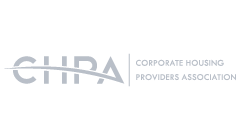BUSINESS TRAVEL PICKS UP AGAIN AFTER COVID-19 RESTRICTIONS EASE!
Here’s the latest updates on Covid-19 regulations for Lisbon, London and Madrid.
Two years ago, we all got news that changed how we interact with the outside world. Between missing your mum’s birthday and wearing face masks that fogged up our glasses, all of us have been affected by Covid-19 restrictions.
However, Covid-19 now seems to be a thing of the past, and 2022 brings a sense of freedom and relief we haven’t felt in a long time.
As you plan your next holiday, or accommodation your business trip, here’s a look at how the Covid-19 regulations have changed, and what this means for your Roomspace stay.
So you can travel with peace of mind, and make up for lost time.
Lisbon
When travelling
- Fill in the Passenger Locator Card before travelling to Portugal
- To travel from other European countries into Portugal (Lisbon), you will need the European Digital Certificate of Vaccination, proof of vaccination at least 14 days (and no more than 270 days) prior to travel, or proof of a negative test result (PCR within 72 hours of travel, or rapid antigen tests approved by the EU Health Committee within 24 hours of travel).
- Children under 12 are exempt from all above requirements.
During Your Stay
- There is no longer a limit to the number of people in a public place, nor operating hour restrictions for businesses.
- Digital certificates of vaccination are no longer required to enter establishments, except for border control.
- Proof of a negative COVID-19 test is no loner required to access major events, sports venues, bars, and nightclubs.
- Use of masks is mandatory in closed spaces and places not excepted by the DGS.
Madrid
When travelling
- Fill in the Spain Health Control Form no more than 48 hours before travelling to Spain
– By air: via the website https://spth.gob.es or the Spain Travel Health -SpTH- app (Android, iOS).
– By sea (ferries): via the website https://spthm.puertos.es/
Check, in order to fill in the Health Control Form, whether your country of departure is on the list of high-risk and high-risk countries/areas.
- Present the QR code provided through the form at the airport to be allowed into Spain.
- UK-Spain tourism – you must show proof of full vaccination or, if you are not full vaccinated and have had COVID-19 in the last six months, you may provide a medical certificate or recovery record instead.
- Children 12-17 do not need to show proof of vaccination, diagnostic tests, or recovery. Instead, they should present proof of having taken a Covid-19 nucleic acid amplification test (NAAT), such as a PCR, within 72 hours before travel. Antigen tests will not be accepted.
- For travel to Spain, only antigen tests taken within 24 hours (not 48 hours) before arrival will be accepted.
- To travel from other European countries into Spain (Madrid), you will need the European Digital Certificate of Vaccination.
During Your Stay
- Regulations regarding the mandatory use of masks indoors are no longer enforced, except in residences, hospitals, or public transport. It is not mandatory to wear a face mask outside.
- Isolation for asymptomatic individuals is no longer mandatory, except in vulnerable populations.
- It is mandatory to wear a face mask when attending large outdoor events.
London
When travelling
- From Friday 18th March 2022 (today!), visitors are no longer required to provide proof of a Covid-19 test before or after arriving.
- From the above date, passengers are also no longer required to fill in the Passenger Locator Form upon arrival in the UK.
- Visitors will not need to quarantine after arriving in England (London).
During Your Stay
- From Friday 18th March 2022, you do not need to quarantine when arriving in England, regardless of your vaccination status.
- Use of face masks is no longer mandatory in any setting, although the government still encourages individuals to wear masks indoors, on public transport, and anywhere else likely to host large groups of people.
- Proof of vaccination (NHS Covid Pass for UK residents) is no longer required to enter establishments, and any organisation that continues to require this does so under their individual policy. If this is the case, you should be informed of the requirements prior to your visit and must comply by the regulations put in place.









